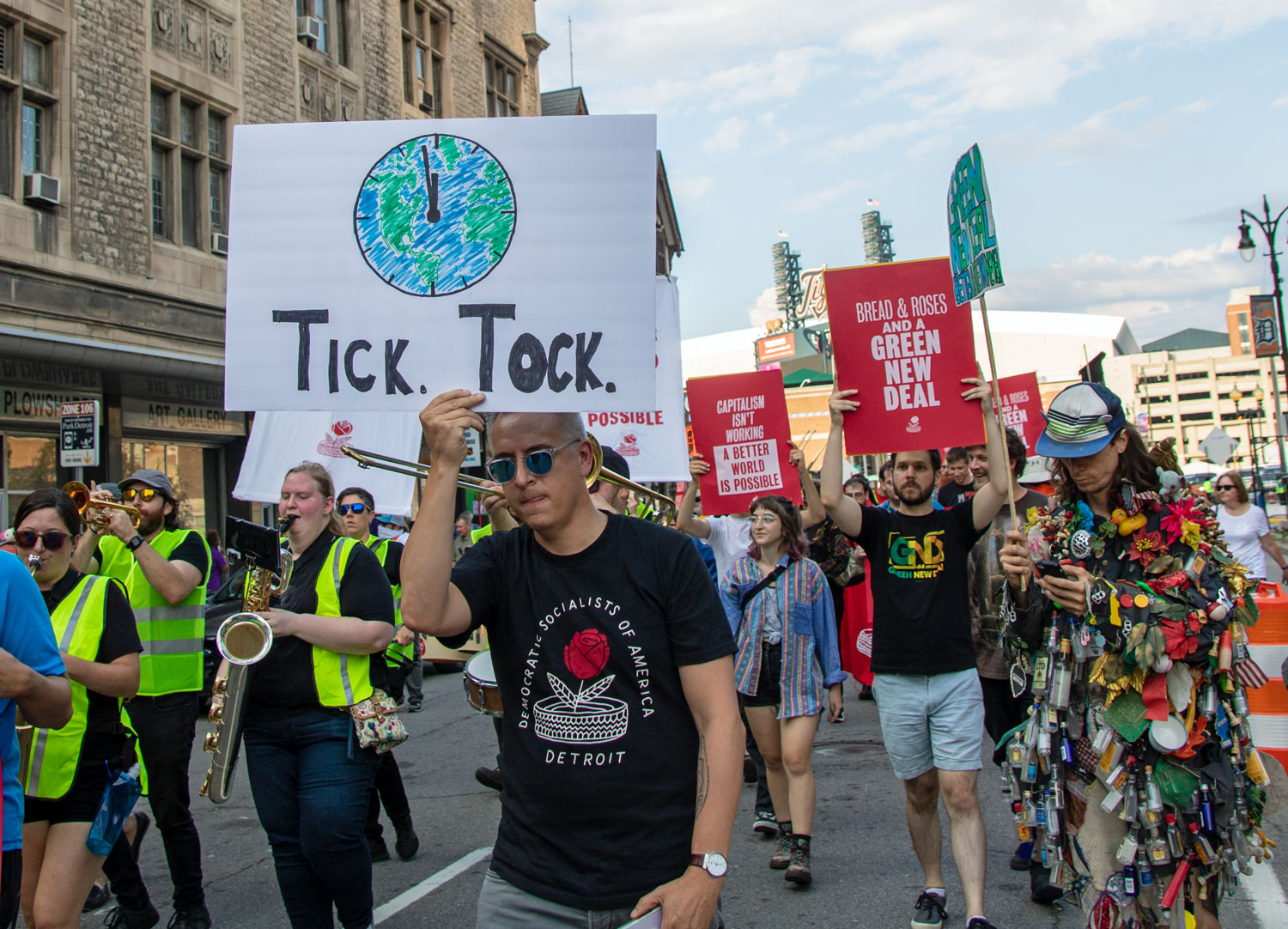In May this year, Yanis Varoufakis proudly announced the unifying Green New Deal and the green agenda.
“This is a great opportunity for progressives across Europe to unite around a doable, radical but at the same time moderate agenda … It can be for progressives what immigration and racism is to the rightists,” he said.
The climate agenda has indeed united progressives. Events have ranged from marches on the Meadows, to demonstrations in Dundee, masses in Manchester, crowds in Colombia, Malta, Denmark, Afghanistan, Guatemala, Myanmar (but maybe not Cuba and China).
Can one have any doubt that the green movement is a uniting force?
And a Green New Deal will likely ride this wave very well. Even if people don’t quite understand what it is about (which seems to be rather likely), if they’re persuaded that it’s for the better, it could catch on quickly.
The Green New Deal is an American initiative led by Alexandria Ocasio-Cortez and Ed Markley, which seeks to tackle social injustice and the climate crisis simultaneously. Importantly, it is currently lacking in concrete policy measures and methods to execute the targets it outlines.
This will probably help its claim to fame. With nothing too detailed in it, it is harder to oppose — simply because there is less to dislike.
This is perhaps why Varoufakis is correct in arguing that it can be the cause to unite all progressives, and not just the left.
The question that beckons is whether Ocasio-Cortez and Varoufakis’s left leaning principles can gain enough momentum to overtake the looming far-right. This may be done by putting out broad justice-based principles which are hard to disagree with, both excitingly promising and boringly bare, like this Green New deal.
But it is perhaps where Varoufakis has gone too far. To argue that the Green New Deal, and the green agenda in general, can be to progressives what racism is to the far right, is a bit of a stretch.
This is due to the fact that ‘green’ ideals call for a higher level of maturity than racist ones, and in truth, it’s much easier being racist than being conscious of the climate crisis.
If you’re racist, you get to direct your hate at someone you can see and perceive, it’s never you or your kind that’s causing the problems. As an ‘us’ against ‘them’, it’s a game you can win. With an ecologically-just agenda, the starting point is recognition that it’s not your Pakistani neighbour causing all your country’s problems. Neither is it Eastern Europeans immigrating en bulk to take your jobs.
With a green agenda, you must start by accepting that we are facing this crisis because of the actions of us all, of one world and one humanity. “First cast out the beam out of thine own eye” (Matthew 7:5) someone said 2000 years back, but it’s easier said than done.
Moreover, there’s nobody to scapegoat, oppose, or fight with. It’s like going to the stadium to watch the derby but finding out there’s no opponent. What’s the fun in that?
The question to ask is whether we, as a society, and moreover as human beings, are mature enough to fully embrace a goal necessitating self-criticism and self-sacrifice over a more exciting one, which provides the opportunity to hate and blame an enemy.
When the answer is yes, that is when the green agenda will be as powerful racism in shaping world order.
Are we there yet? Some of us are, indeed many of us are, but it is still not enough.
For now, the tussle of ideologies must continue.
Image: Becker1999

